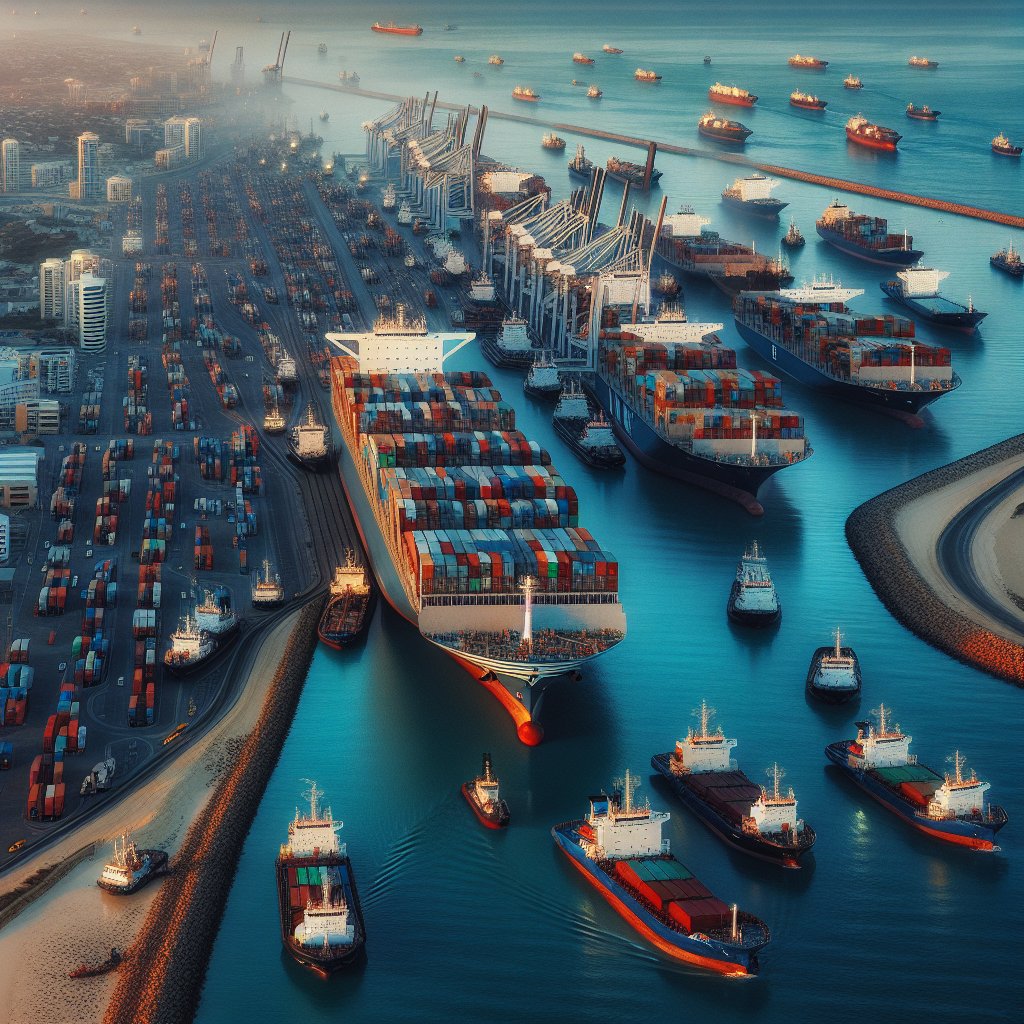Content created by AI
South Africa's Maritime Moment: A Call to Seize Suez Canal Diversion Benefits Amidst Regulatory Challenges
The redirection of more than one hundred container vessels around the southern tip of Africa, circumventing the Suez Canal due to Middle East tensions, positions South Africa at the forefront of an unforeseen maritime shift. This rerouting precipitated by the volatile situation in the Red Sea and Gulf of Aden, where Huthi rebels targeted ships, spotlights the country's strategic location and underscores the need for prompt action to harness the economic prospects at hand.
The Maritime Business Chamber (MBC) in South Africa recognizes this unexpected detour of sea traffic as an exceptional and profitable chance to bolster the nation's global maritime significance. The executive chairman of MBC, Nathi Sonti, accentuated South Africa's ability to offer vital maritime amenities, asserting that swift adjustment and augmentation of these services are crucial to capitalizing on the situation.
Emphasizing this sentiment, Operation Phakisa – Ocean Economy, an initiative aimed at revitalizing South Africa's ocean economy, has been targeting strategic innovations to make the Cape Sea Route a highly competitive and viable option for global shipping. Algoa Bay, off the shores of Gqeberha, is home to an international marine bunkering hub, a testament to these ambitions and a contributor to local employment and the proliferation of small and medium enterprises.
However, the recent pressure from the South African Revenue Services (SARS) on tax compliance, notably concerning marine bunkering services, casts a shadow over this emerging opportunity. The impoundment of bunker vessels operating in the economically pivotal Algoa Bay ignites concerns over the potential loss of refueling services, which could deter international vessels from utilizing South Africa's maritime offerings.
The SARS's investigative undertakings into the bunkering industry's compliance with customs and taxation regulations, which resulted in the detention of vessels, form part of a broader intent to ensure lawful economic activities while also encouraging business development. Despite this assurance, the timing of such stringent regulation raises questions about the prospects that may slip away from South Africa's maritime sector due to these hindrances.
Insights from industry professionals encapsulate the stark dichotomy of the current moment: on one side lies the tantalizing possibility of South Africa strengthening its foothold in international maritime trade, and on the other side, the looming threat of regulatory restrictions stifling the country's potential to offer sanctuary for redirected shipping traffic.
Considering the scenario's exigency, Sonti calls for SARS to expediently reevaluate its stance, beckoning a balance between lawful oversight and the agility required to leverage geopolitical shifts in favor of the nation's economy and the broader global shipping continuum.
As South Africa navigates the crossroads between unprecedented economic gain and regulatory rigidity, the global spotlight shines on its decision-making, potentially solidifying or undermining its maritime status.
